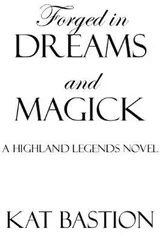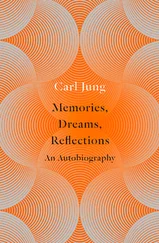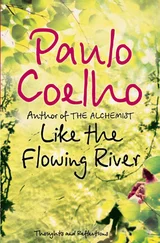I’m still scared of the Stones because I always have this feeling – and it’s not just an illusion – of being sucked in again. Unlike Anita, I don’t have any immediate connection with them. I’m a free agent, and yet, when I see them, I suddenly feel drawn in. I go back to their very beginnings. I am part of them. I know that. And that’s okay.
One of the favourite places Mick and I liked to hang out was George and Pattie Boyd’s house in Weybridge. Mick loved George and I thought Pattie one of the most beautiful people ever. I loved the way she dressed, her fantastic sense of style. Psychedelic dresses in beautiful colours or little skirts that showed off her wonderful legs.
During those magical afternoons George would be the perfect host, serving up exotic teas, fat joints, and his new songs like exquisite delicacies offered for our consumption. A little bungalow (by rock star standards) brightly painted in sparkly psychedelic ice-cream colours, very warm and cosy and friendly, like the people who lived there, with a garden full of sunflowers and cushions outside. Just a very soft, gentle vibe, as if this fairy-tale cottage were conjured out of his sweet melancholy songs.
It was always far easier to go and visit people from other bands. You didn’t have all the stresses and strains you do with your own group. At Redlands, Keith’s house in West Sussex, there was always some tension – undercurrents that I couldn’t even put into words. Subterranean stuff, which I think is always lurking about in any band. What makes an interesting band is that incongruous combination of people at odds. The tension makes for great music, but it doesn’t always make for the easiest social situations.
Clearly there were similar issues with the Beatles, but any raging insecurities or problems within the group were never apparent at Weybridge on a sunny afternoon, with George sitting cross-legged on a kilim playing us his songs.
So being with George and Pattie was very relaxing. Mick and I were able to lie back on Moroccan cushions, get high and float away listening to George’s new songs. When he wasn’t playing his own stuff, he would be playing Ravi Shankar on those beautiful green discs we all used to have. I do think he very much brought all that into our world.
Mick loved George’s songs – those wonderful songs on Revolver – but George never felt that anybody appreciated his songs, really, or thought they were as good as John and Paul’s. George was racked with doubt about his work, but it’s now obvious what a great songwriter he was. ‘Beware of Darkness’ is as good as anything anybody ever wrote.
In a way, Brian Jones was George’s counterpart in the Stones. But there was a big difference in their personalities. The thing about George – and we all feel it strongly now that he’s gone off and left us – is that he plunged into things. Whatever he got into, whether it was the sitar and Ravi Shankar or the Maharishi, he walked right in and never looked back, and that takes a lot of confidence. Brian, on the other hand, was all flash. He loved to astonish – and then on to the next thing. Sometimes I’d get the eerie feeling that – like the positive and negative in a photograph – George was the positive version of Brian. They were quite similar in many ways; both could play a lot of different instruments and were hugely talented. But of course one huge difference was that Brian was unable to write songs. His perpetual upsetness and unhappiness and paranoia and low self-esteem all worked against him. It was tragic because he wanted to be a songwriter more than anything. I’ve watched the painful process, Brian mumbling out a few words to a twelve-bar blues riff and then throwing his guitar down in frustration.
I think in Brian’s state writing a song probably wasn’t possible. He could only do it through another medium, through Keith. I guess the closest he came to it was ‘Ruby Tuesday’, where his melancholy recorder wistfully carries that sense of irretrievable loss. ‘Ruby Tuesday’ was a collaboration between Keith and Brian. It’s one of the few cases where Mick had nothing to do with a Stones song, neither the lyrics nor the melody – but he and Keith got the writing credit. Without Brian, there wouldn’t be a ‘Ruby Tuesday’.
It’s funny how each drummer was so perfect for the band they were in. Mick admired Ringo’s drumming – it was so simple, so spare, so incredibly on the money – but it wouldn’t have fitted into the Stones at all. You couldn’t have taken Ringo and put him in the Stones; you couldn’t have Charlie Watts drumming for the Beatles. As for Keith Moon, his drumming would have got too much in the way of the guitars and the vocals in either the Stones or the Beatles, but could there have been a more perfect drummer and maniac for The Who than Keith Moon?
I’ve heard this funny theory that Mick wanted to be a Beatle and that John wanted to be a Rolling Stone, but I think it misses the point by a mile. Mick loved the Beatles, of course, and obviously there was a bit of natural competition going on there, but I don’t think that was unhealthy at all – they sparked off each other.
You know, people have said, with a little truth to it, that the Beatles were thugs pretending to be gentlemen, whereas the Stones were gentlemen pretending to be thugs, and this is where it all gets so interesting when we talk about the music, because you’ve got those contradictory aspects bleeding through. They’re very subtle, but they’re there, and that’s what makes the music so compelling, the rent in the temple cloth.
The thing about the Stones is that they were very intense about everything: about writing, recording, and performing. The Beatles had a similar intensity in the studio, but they were never able to transmit that on to the stage. They were so unlucky with what they went through in the early days; not being able to hear themselves play. It was a complete fuck-up that we have to lay, I’m afraid, at Brian Epstein’s door.
One of the things a manager must do is make sure that theb technical aspects are taken care of when the musicians go on stage. Kit Lambert and Chris Stamp did it for The Who, Clapton’s crew looked after Eric. The basic responsibility of people who take care of any band, including mine, is to make sure that the sound is right so that the musicians can enjoy the experience. That’s vitally important, and Brian Epstein just didn’t get that together. He never made that leap from playing small venues in the north of England to playing Shea Stadium. It’s tragic to see the Beatles on stage with their tiny amps, unable to hear a thing. And naturally, after that last tour, they came back from all that and said, ‘That’s it! We’re never going out again!’ And then Brian Epstein got really depressed because he realised he was almost out of a job.
The Beatles completely evolved from the pop business. The Stones began as a Brit Chicago R & B group and then lurched into a more raunchy rig than the Beatles ever managed. When the Beatles stopped touring in 1966 they were still the lovable Fab Four – they were rock’n’roll muppets. The Stones were menacing and sexy. A lot of that had to do with the kind of music they played, with Andrew Oldham, their manager, pushing their bad-boy image and Mick and Keith’s natural bolshiness. But much of it, too, had to do with Mick’s savvy on the business side. They never had a manager in the sense of a daddy figure like Brian Epstein telling them what to do – Andrew was younger than they were and more reckless. They weren’t dependent on Allen Klein or Andrew – they were their own gang. Also, you have to take into account that the Beatles were the pioneers and nobody had invented proper speakers yet. It was so early on that nothing had been sorted out yet.
Читать дальше












